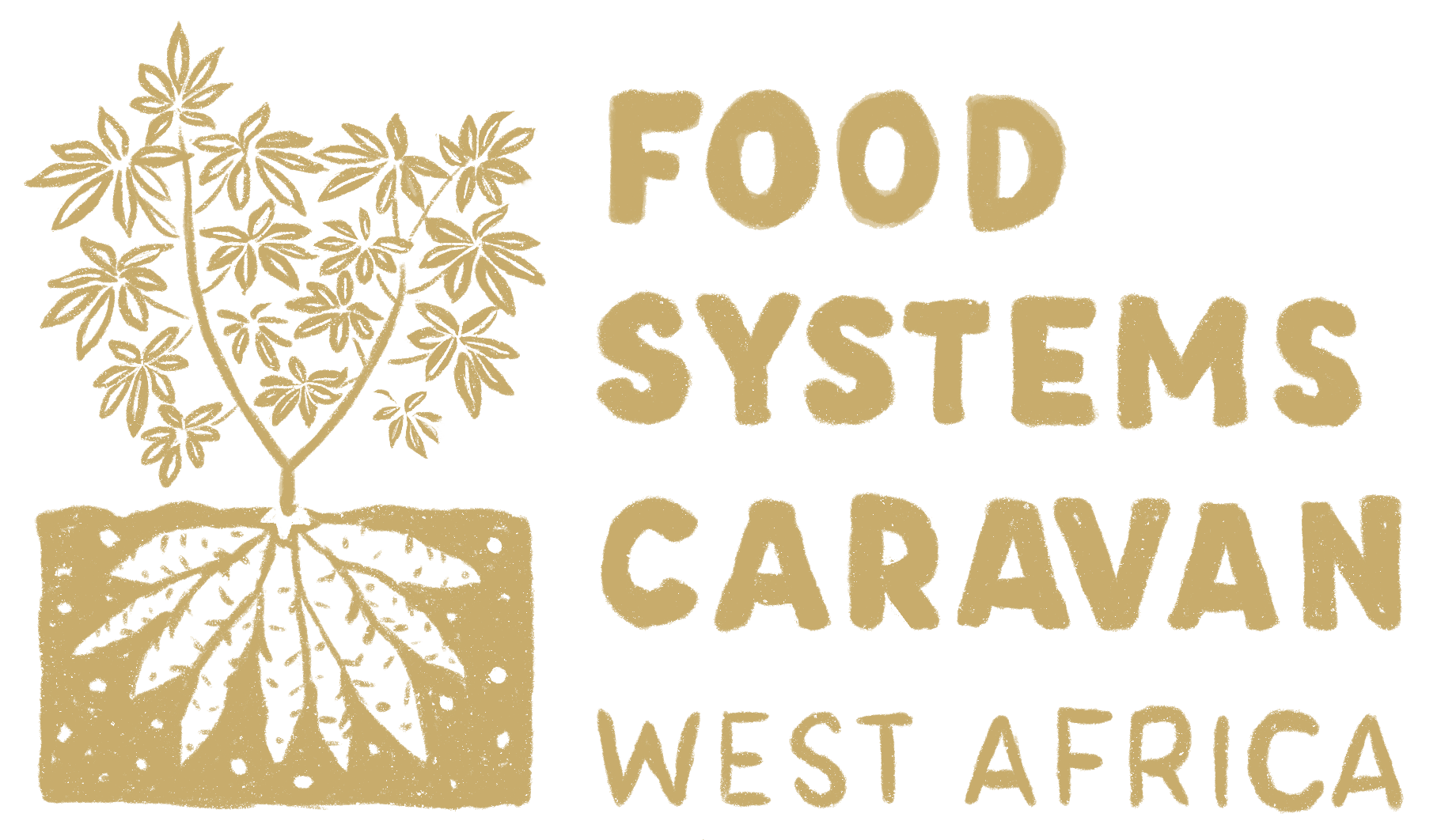[Français ci-dessous] The third whole day conference organized by the food systems caravan took place in the campus of the University of Ghana, in Accra, and had as a title “Transforming Food Systems in Ghana: The potential of Agroecology in times of climate and biodiversity crisis”. The conference counted with the presence of around 70 people, including members of research institutions, NGOs, development agencies, students, and the presence of representatives of the ministry of food and agriculture, the council of state and the high level panel of experts on food security and nutrition of FAO. There was a total of five presentations, including three r4d projects (FoodSAF, ORM4Soil and IFWA) and guest speakers from the Obrobibini Peace Complex and the ministry of food and agriculture. After a lively panel discussion which comprised technical, economic and cultural aspects of food systems, the participants split in four groups in order to collectively draft recommendations for policy makers regarding the upscaling agroecological principles at the national level, the promotion of innovations to improve the sustainability of food systems, and strategies to enhance the link between science and practice in order to make food systems more sustainable and fair.
La troisième journée de conférence organisée par la caravane des systèmes alimentaires s’est déroulée sur le campus de l’Université du Ghana, à Accra, et avait pour titre “Transformer les systèmes alimentaires au Ghana : le potentiel de l’agroécologie en période de crise climatique et de biodiversité”. La conférence a compté avec la présence d’environ 70 personnes, dont des membres d’institutions de recherche, d’ONG, d’agences de développement, d’étudiants, et la présence de représentants du ministère de l’alimentation et de l’agriculture, du Conseil d’Etat et du panel d’experts de haut niveau de la FAO sur la sécurité alimentaire et la nutrition. Il y a eu un total de cinq présentations, dont trois projets du R4D (FoodSAF, ORM4Soil et IFWA) et des conférenciers invités du projet Obrobibini Peace Complex et du ministère de l’alimentation et de l’agriculture. Après un débat animé qui a porté sur les aspects techniques, économiques et culturels des systèmes alimentaires, les participants se sont répartis en quatre groupes afin de formuler collectivement des recommandations à l’intention des décideurs concernant la transposition à plus grande échelle des principes agroécologiques au niveau national, la promotion des innovations pour améliorer la durabilité des systèmes alimentaires et les stratégies pour renforcer le lien entre science et pratique afin de rendre les systèmes alimentaires plus durables et équitables.







